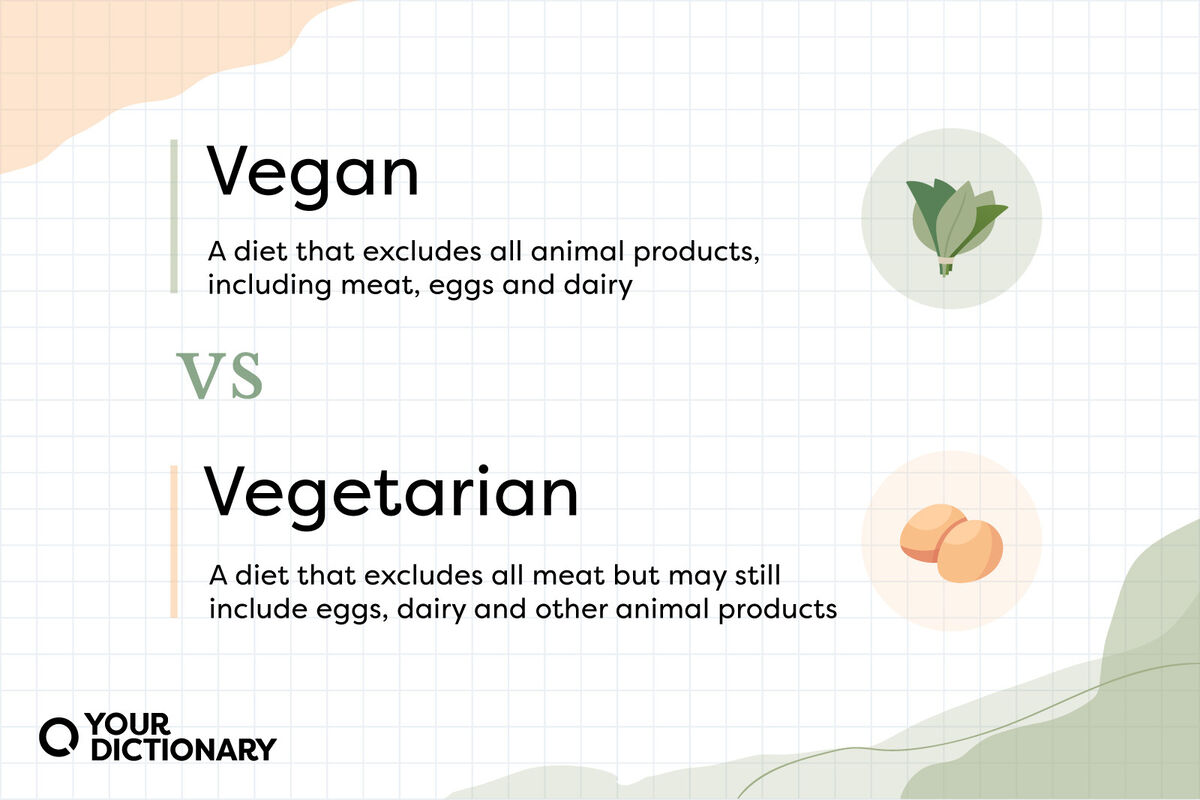
A barbecued brisket taken right off the grill or a farm fresh salad full of heirloom veggies? For a vegan or vegetarian, that’s a simple choice. Both diets prominently feature vegetables, but what are their exact differences?
Vegan: Zero Animal Products
Vegan can refer to a person or describe a person’s diet or lifestyle. The vegan diet excludes all food products that come from animals, including:
- All meat, poultry and fish
- Eggs
- Dairy products
- Gelatin
- Honey
A vegan can otherwise consume anything else, prominently fruit, vegetables and legumes.
Vegan Lifestyle
Some vegans take the same ideas and incorporate them into their general lifestyle by excluding all animal products. For example, a vegan may not purchase clothing that contains leather or wool or use cosmetics containing animal products.
Vegetarian: No Meat
Similar to the vegan diet, the vegetarian diet largely comprises fruits and vegetables while excluding meat. Unlike vegans, vegetarians may still choose to consume foods and food products that are derived from animals, including eggs and dairy products.
Vegetariations: Vegetarian Variations
Not all vegetarian diets are the same. You’ll find several variations and types of vegetarian diets.
|
Diet |
Description |
|
Flexitarian |
Mostly vegetarian but may occasionally partake in meat, fish, poultry and seafood |
|
Pescatarian |
Vegetarian diet that includes fish and seafood |
|
Ovo-vegetarian |
Vegetarian diet that includes eggs but no other animal products |
|
Vegetarian diet that includes dairy but no other animal products |
|
|
Pollotarian |
Vegetarian diet that includes poultry |
Two Peas in a Pod
If you’re vegan, you’re technically vegetarian, though the opposite doesn’t hold true. Many vegans and vegetarians may also create their own individual guidelines based on health, personal preferences and other factors, leading to even more variations.